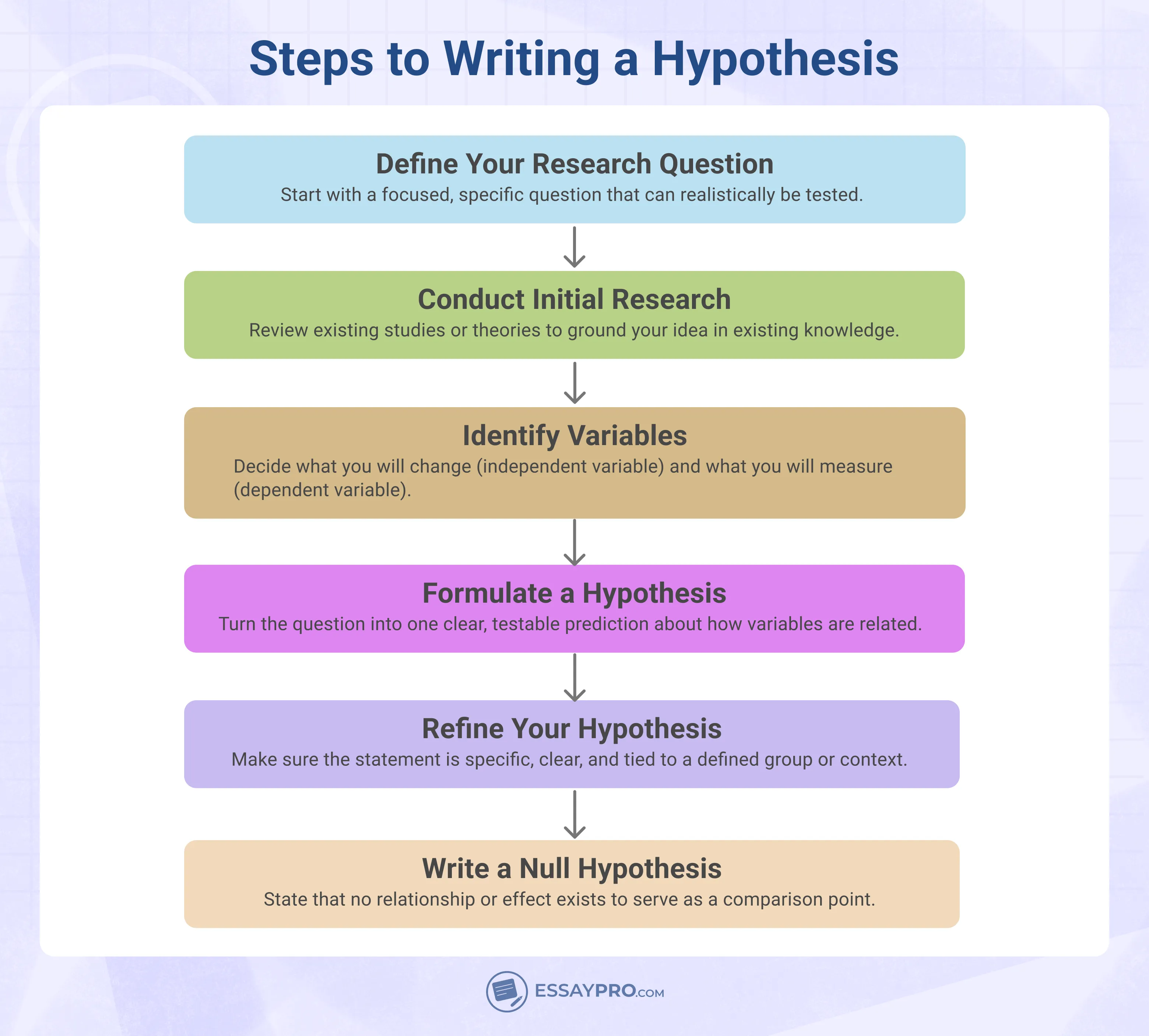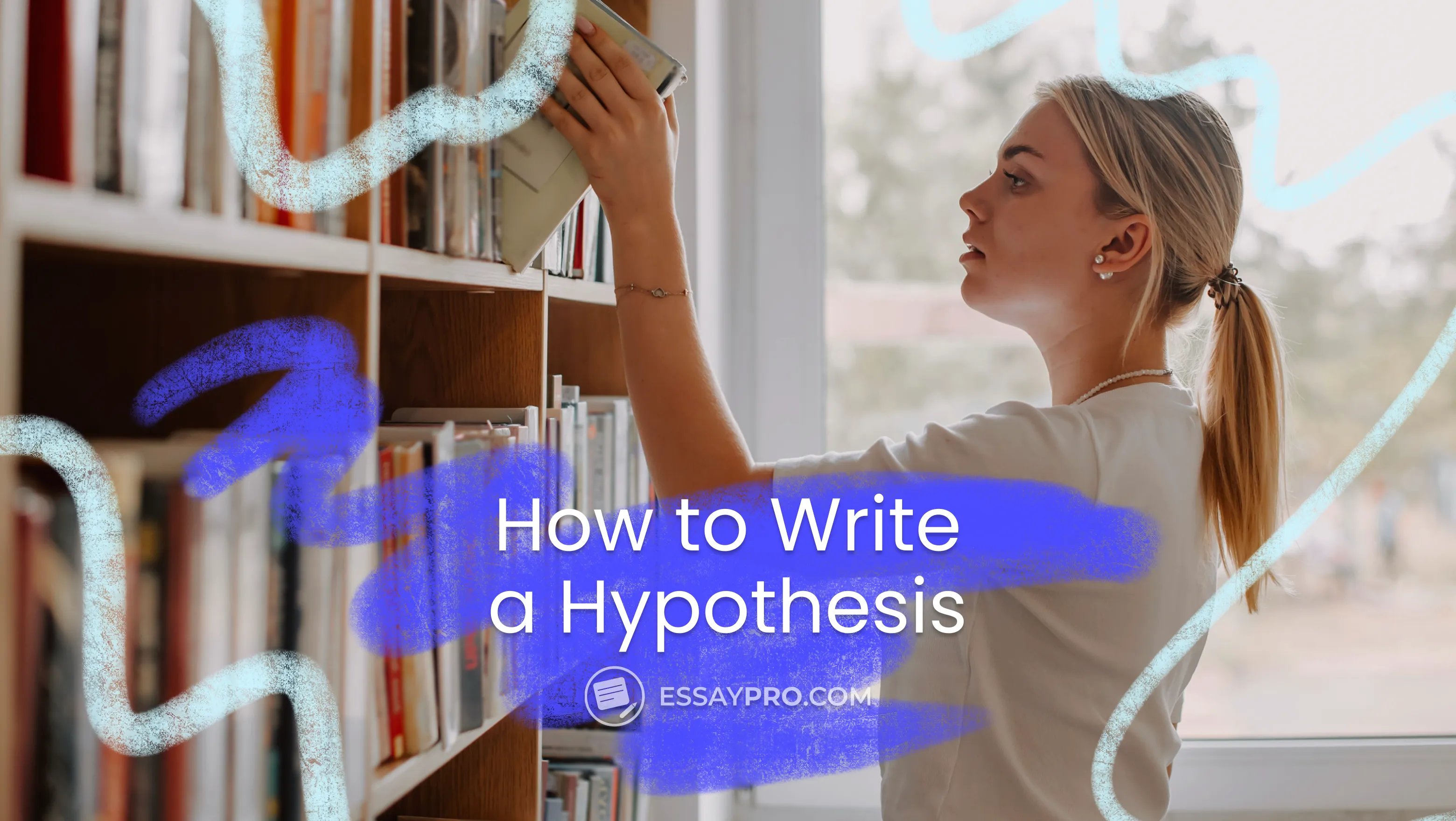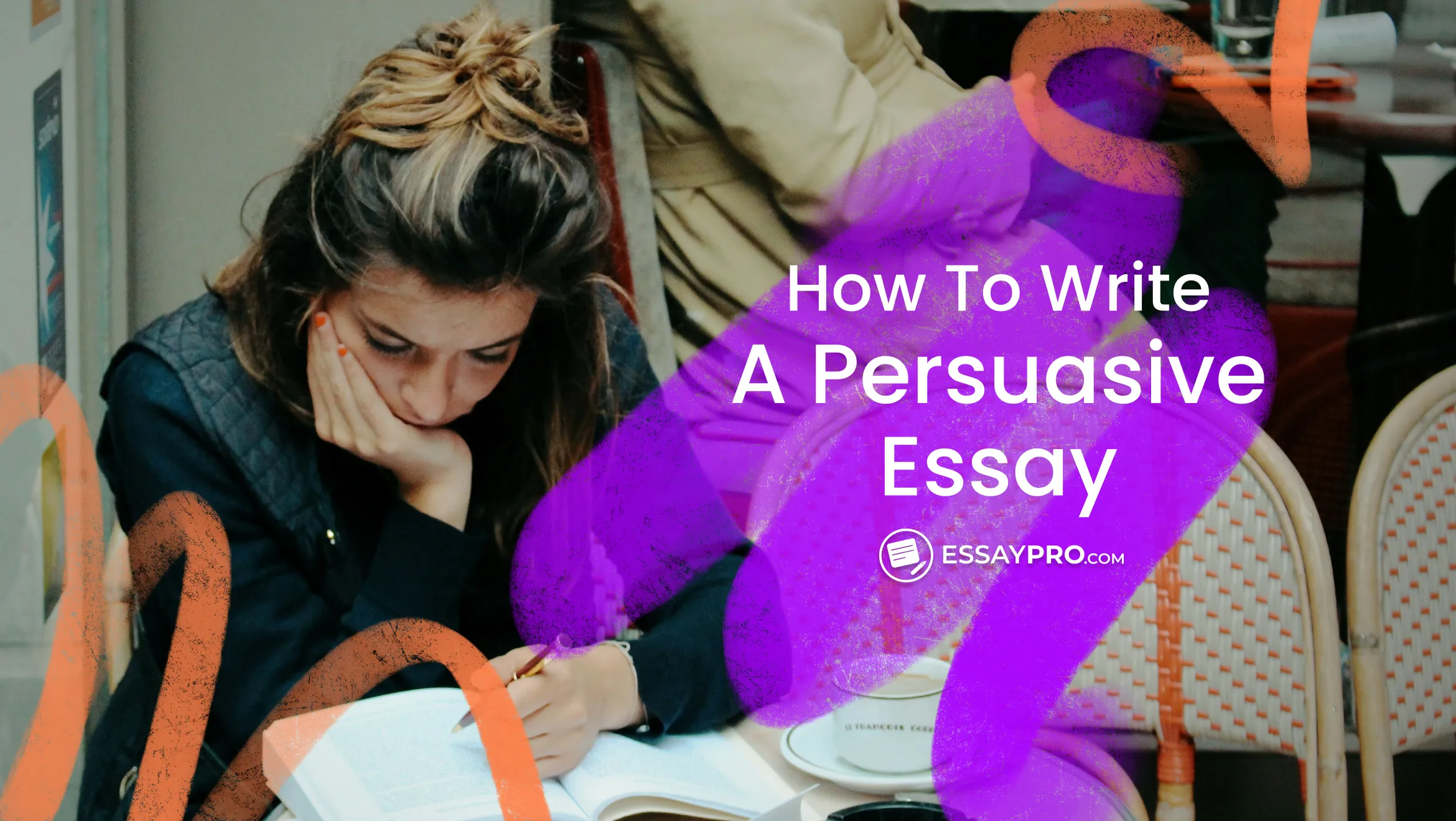To write a hypothesis, begin with a focused research question, review existing research, identify key variables, and then write a clear, testable statement that explains what you expect to happen. This statement often follows an if-then statement format and reflects an educated guess grounded in evidence. A solid hypothesis predicts an outcome, connects independent and dependent variables, and can be evaluated using data, as shown in many examples of hypothesis.
If the research process starts to feel overwhelming, EssayPro can help with everything from organizing ideas to refining structure. For document-based assignments, our guide on how to write a DBQ fits naturally into the same writing process.


What is a Hypothesis?
A hypothesis is a clear, testable statement that explains what a researcher expects to happen in a study. This definition of hypothesis reflects its role in academic research as a prediction grounded in prior knowledge, preliminary research, or observations. The purpose of a hypothesis is to guide the research process by giving the study a specific direction. It helps researchers decide what data to collect, how to design an experiment, and how to evaluate results once the study is complete.
Understanding Variables in a Hypothesis
A hypothesis becomes easier to understand when you break it into the parts being tested. At its core, it looks at how one change leads to a result, which is why variables matter.
- Independent variable – what the researcher intentionally changes.
- Dependent variable – what changes in response and gets measured.
Characteristics of a Good Hypothesis
When writing a hypothesis in a research paper, the goal is clarity and focus. A strong hypothesis usually has a few shared qualities that make it workable in real research.
- Clear variables – It’s obvious what is being changed and what outcome is being watched.
- Defined population or context – The hypothesis points to a specific group, setting, or situation rather than something vague.
- Measurable language – The outcome can actually be measured, counted, or observed in a study.
- Connected to existing research or theory – The idea grows out of what is already known instead of a random guess.
- Testable and open to being proven wrong – The statement can be tested with evidence and may be supported or rejected based on results.
How to Write a Good Hypothesis
Writing a hypothesis isn’t complicated; it’s all about turning a question you’re curious about into a clear, testable statement. Here’s how to do it, step by step, so you have a strong foundation for any research project.

1. Define Your Research Question
Every hypothesis starts with a solid question. Your research question should be specific and clear, something you can actually test without getting lost in too many details. When your question is focused, it makes everything that follows way easier.
2. Conduct Your Basic Initial Research
A hypothesis is an educated guess, so doing some basic research will help you make a solid one. Look for existing studies, facts, or theories on your topic to get a sense of what’s already known. This info will give your hypothesis a good foundation instead of just a random guess.
3. Identify Variables
Decide what you are changing in the study and what result you expect to observe. The factor you adjust is the independent variable, and the result that responds to it is the dependent variable.
4. Formulate a Hypothesis
At this step, turn your research question into a single, clear prediction. Say what you expect will happen and how one variable will influence another, often in a simple “X affects Y” form. When phrasing a hypothesis for experiments, using an if-then statement can make the idea easier to test.
5. Refine Your Hypothesis
When writing a hypothesis sentence, make sure you include:
- The relevant variables – what is being changed and what is being measured.
- The specific group or context – who or what the hypothesis applies to.
- The expected outcome – what you predict will happen based on your reasoning or prior research.
6. Write a Null Hypothesis
A null hypothesis assumes there is no relationship, difference, or effect between the variables being studied. It gives researchers a clear statement to test against and helps determine whether any observed results are meaningful or due to chance.
Hypothesis Example
Following a step-by-step guide and tips from our essay writers for hire, you should be able to create good hypothesis examples with ease. To give you a starting point, we have also compiled a list of different research questions with one hypothesis and one null hypothesis example for each:
Different Types of Hypotheses
Hypotheses come in several forms, each suited to specific research needs and methods. Here’s a look at different types of hypotheses and how they’re used.
Null Hypothesis (H0)
The null hypothesis is the “no effect” hypothesis. It’s the default assumption that there’s no relationship or difference between variables. Researchers use it to test if their results are significant enough to reject it.
Alternative Hypothesis (H1)
The alternative hypothesis predicts a relationship or effect between variables. It’s used to show that something is happening and that there’s a measurable difference or change. The alternative hypothesis directly contrasts the null hypothesis by stating that something is happening rather than assuming no effect or relationship.
Simple Hypothesis
A simple hypothesis focuses on how a single independent variable affects one dependent variable. It keeps the idea narrow and direct, which makes testing and analysis much easier. When formulating a hypothesis, this approach works well for studies that examine one change and one outcome without added complexity.
Complex Hypothesis
A complex hypothesis involves multiple variables — more than one independent variable and/or more than one dependent variable. It’s used when you’re testing several factors at once to see how they interact.
Directional Hypothesis
A directional hypothesis takes it a step further by specifying how one variable is expected to affect another. Instead of simply saying a relationship exists, it predicts the direction of change, such as an increase or decrease. This kind of hypothesis is common when earlier findings already suggest what outcome to expect.
Non-Directional Hypothesis
A non-directional hypothesis states that a relationship or difference exists without predicting its direction. It’s often used when there isn’t enough prior evidence to expect an increase or decrease, only that the variables are connected. When you make a hypothesis at this stage, the goal is to acknowledge a link without overcommitting to a specific outcome.
Associative Hypothesis
An associative hypothesis suggests that variables are related or tend to change together, without implying that one causes the other. This type is useful for identifying patterns, especially early in research, when you create a hypothesis based on observed connections rather than cause-and-effect claims.
Statistical Hypothesis
A statistical hypothesis is used in quantitative research and defines expected relationships or parameters that can be tested using statistical analysis. This type usually applies mathematical methods to test if the observed effect is significant.
Logical Hypothesis
A logical hypothesis is grounded in reasoning and background research, rather than direct observation or experiment. It’s used to explore ideas that are theoretically plausible and can lead to further investigation.
Empirical Hypothesis
An empirical hypothesis, also called a working hypothesis, is one that can be tested through direct observation and experimentation. This type of hypothesis is usually applied in real-world experiments.
Causal Hypothesis
A causal hypothesis specifically states a cause-and-effect relationship between variables. This hypothesis is often used when you’re aiming to determine the impact of one variable directly causing a change in another.
Hypothesis vs Prediction
It’s easy to mix up a hypothesis and a prediction — they both seem like educated guesses, right? But they’re actually quite different.
A hypothesis is a broader statement that suggests a possible relationship between variables and can be tested through research. It’s the starting point for understanding the “why” or “how” behind something.
A prediction, on the other hand, is a specific expectation about what will happen under certain conditions, often based on that hypothesis.
In other words, a hypothesis is your main idea or proposed explanation, while a prediction is the outcome you expect to see if that hypothesis holds up. Think of a hypothesis as the foundation, and a prediction as the building blocks you add on top.
Here’s a breakdown to make it clearer:
Hypotheses guide research studies, while predictions are more common in explanatory writing. Browse informative essay topics to see how ideas are explained without testing a claim.
Key Takeaways
- The research hypothesis definition refers to a specific, testable statement that predicts a relationship or effect between variables.
- A hypothesis gives your research direction by turning curiosity into a focused, testable idea.
- Strong hypotheses clearly define variables and explain the relationship you expect to observe.
- Using simple, precise language makes a hypothesis easier to test and analyze.
- Different types of hypotheses serve different research goals, so choosing the right form matters.
- When you create a hypothesis, grounding it in existing knowledge helps reduce bias and ambiguity.
If you’re struggling to shape your ideas into a clear hypothesis or need help with a full research paper, EssayPro can step in. We cover everything from early research planning to final drafts, especially for demanding fields like nursing. Learn more about our nursing writing services.
FAQs
What Is a Null Hypothesis?
A null hypothesis assumes that nothing meaningful is happening between the variables being studied. It sets the starting point for analysis by treating any differences or effects as chance-based until the data shows otherwise. Researchers use it as a reference point to decide whether the results actually matter or simply happened randomly.
How Do You Formulate a Hypothesis Statement?
To formulate a hypothesis statement, start with a clear research question, identify the key variables, and state what you expect to happen. The statement should be specific, testable, and based on existing knowledge or observations rather than a vague idea.
What Are the Main Types of Hypotheses?
The main types include simple and complex hypotheses, directional and non-directional hypotheses, null and alternative hypotheses, and associative hypotheses that describe relationships without claiming cause and effect.
What Is an Example of a Good Hypothesis?
A good hypothesis clearly links variables and predicts an outcome that can be tested. Example of hypothesis: Students who sleep at least eight hours per night will perform better on exams than students who sleep fewer than six hours.
What Is a Simple Hypothesis?
A simple hypothesis predicts the relationship between one independent variable and one dependent variable. It focuses on a single cause-and-effect connection, which makes it easy to test and interpret.
What Is a Good Sentence Starter for a Hypothesis?
Common sentence starters include phrases like “Students who,” “There is a relationship between,” or “If X changes, then Y will.” These openings help clearly frame the expected relationship between variables.

Adam Jason
is an expert in nursing and healthcare, with a strong background in history, law, and literature. Holding advanced degrees in nursing and public health, his analytical approach and comprehensive knowledge help students navigate complex topics. On EssayPro blog, Adam provides insightful articles on everything from historical analysis to the intricacies of healthcare policies. In his downtime, he enjoys historical documentaries and volunteering at local clinics.
- Penn State University. (n.d.). Understanding hypotheses and the null hypothesis. Penn State Online STAT 200. https://online.stat.psu.edu/stat200/lesson/5/5.2
- California State University, Bakersfield. (n.d.). Formatting a hypothesis.
https://www.csub.edu/~ddodenhoff/bio100/bio100sp04/formattingahypothesis.htm - University of Melbourne. (n.d.). Shaping the research question and hypothesis. University of Melbourne. https://students.unimelb.edu.au/academic-skills/graduate-research-services/writing-thesis-sections-part-2/shaping-the-research-question-and-hypothesis






